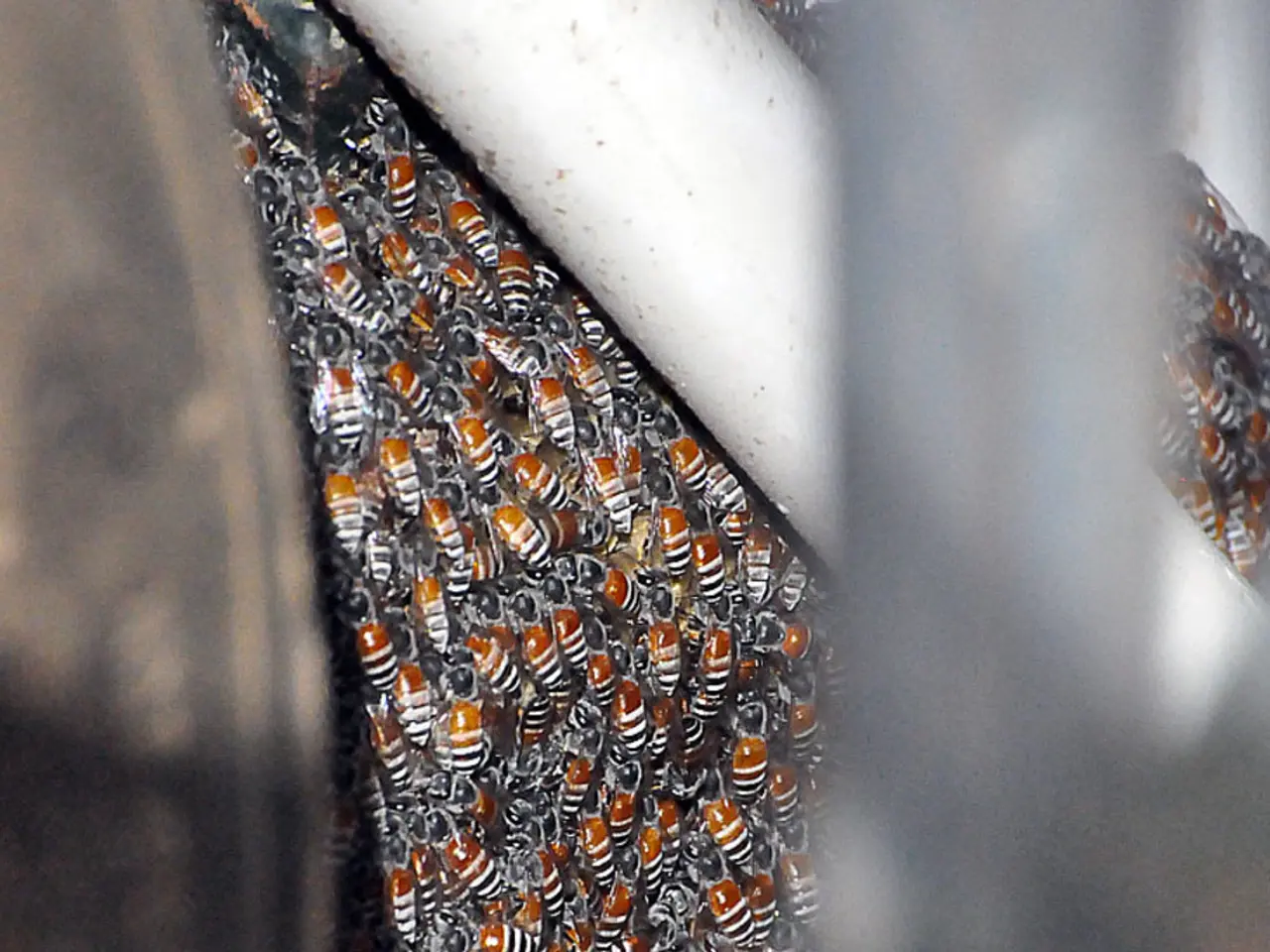Honey collectors resuming operations in the mountainous regions of Eastern Turkey
In the picturesque highland plateaus of Ispir and Pazaryolu districts in eastern Türkiye, a unique and thriving beekeeping community has taken root. Renowned for its high-quality honey production, this region has become a sought-after destination for beekeepers seeking premium honey.
The rich flora and biodiversity found in these regions play a significant role in the production of high-quality honey. The highland plateaus are covered with endemic plants and surrounded by vast pastures, providing bees with a wide variety of nectar sources. This diverse flora contributes to the complexity and richness of the honey produced, appealing to both local and international markets.
Another factor contributing to the high-quality honey production is the minimal use of agricultural pesticides in the regions where migratory beekeepers settle. This creates a cleaner environment for bees, resulting in purer honey. The absence of pesticides helps maintain the natural quality of the nectar collected by bees.
The ideal climate and terrain in northern Erzurum also contribute to the quality of the honey produced. The rugged and varied terrain contributes to greater floral diversity, leading to a more complex and rich honey profile.
Experienced migratory beekeepers from the Black Sea region and other parts of Turkey have been migrating to these areas for years, developing a deep understanding of the local conditions and how to optimize honey production. They spend about six months of the year in the mountains caring for their hives and managing the bees during the honey season, ensuring that the honey is of the highest quality.
The presence of migratory beekeepers significantly contributes to the local economy, as honey is a major product of these regions. Erzurum currently hosts 136,000 registered beehives and welcomes around 200,000 migratory beekeepers during the honey season. The number of registered beehives and visiting beekeepers indicates a substantial economic impact.
Erzurum's reputation as a hub for migratory beekeeping has grown steadily, attracting more beekeepers and contributing to the region's agricultural identity. Beekeepers from Rize, particularly Yasar Ali Aksoy and Kemal Şahin, have kept the tradition alive, with around 100 beekeeping families and 3,000 hives currently present during the summer season.
Despite the local population not showing much interest in beekeeping, the migratory beekeepers have created a family environment among themselves. Şahin mentioned that this family atmosphere is one of the reasons he continues to return to the same region every season for the past 15 years.
Alpaslan Kenger, Erzurum's provincial director of agriculture and forestry, has noted that interest in Erzurum has grown steadily each year due to its rich plant diversity. As the migratory beekeepers continue to flock to these regions, the future of high-quality honey production in Ispir and Pazaryolu districts looks bright.
The unique beekeeping community in Ispir and Pazaryolu districts, known for premium honey production, thrives due to a rich and diverse flora that includes endemic plants. The vast pastures provide a plethora of nectar sources, contributing to complex and rich honey.
The minimal use of agricultural pesticides creates a cleaner environment for bees, ensuring purer honey. The absence of pesticides helps maintain the natural quality of nectar.
The ideal climate and rugged terrain of northern Erzurum contribute to greater floral diversity, leading to a more complex honey profile. Experienced beekeepers from various regions migrate here for six months each year to optimize honey production.
The presence of migratory beekeepers has a significant impact on the local economy, with Erzurum hosting a large number of registered beehives and welcoming numerous migratory beekeepers during the honey season.
The region's reputation as a hub for migratory beekeeping has grown, attracting more beekeepers and contributing to its agricultural identity. Notable beekeepers such as Yasar Ali Aksoy and Kemal Şahin continue the tradition, with a sizable family of beekeeping families residing in the region during the summer.
Although the local population does not show much interest in beekeeping, the migratory community fosters a family atmosphere, which keeps many returning for years. Alpaslan Kenger, the provincial director of agriculture and forestry, notes growing interest in Erzurum due to its rich plant diversity.
As more migratory beekeepers continue to flock to these regions, the future of high-quality honey production looks promising. This development expands beyond honey, with potential applications in global cuisines, lifestyle, fashion-and-beauty, food-and-drink, travel, cars, car-maintenance, and adventure-travel.
Moreover, the cultural exchange between local and migratory communities enriches cultural-travel experiences, while budget-travelers can explore these beautiful landscapes without breaking the bank. The region's unique beekeeping practices, combined with these various explorations, make it an appealing destination for tourists worldwide.
Finally, the growing popularity of electric vehicles offers an opportunity for sustainable travel, promoting tourism while supporting the local beekeeping community, ensuring their tradition of high-quality honey production continues to flourish.




